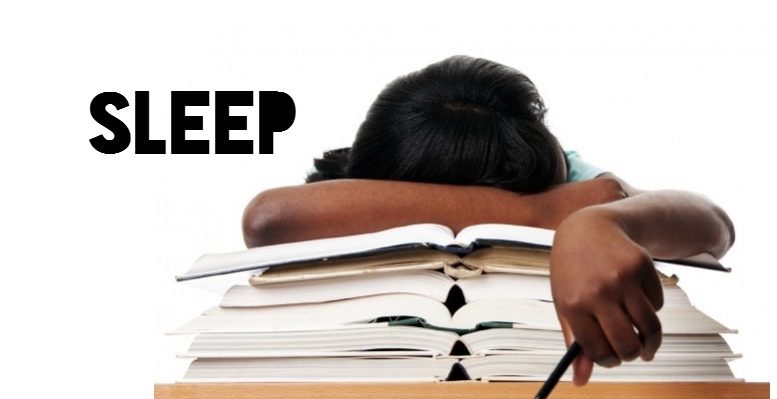By: Staff Writers Alice Cheng and Arti Patankar and Sports Editor Ishan Goyal
Click here for Part 2 (Napping).
Why do we dream?
For eons, humans have puzzled over the science of dreaming. What causes our unconscious mind to form such vivid and realistic experiences? What purpose do these mirages serve? Even today, scientists are investigating these timeless questions and developing possible theories.
Studies have shown that people tend to have a majority of their dreams during a period known as rapid eye movement (REM) sleep. Researchers have discovered that the areas of the brain associated with learning, emotion processing, and memory processing are active during periods of REM sleep.
According to news.nationalgeographic.com, dreaming might be a kind of “overnight therapy” for any emotional stress or stressful memories. Therefore, it can be said that sleep provides emotional as well as mental and physical recharging. If you’re feeling stressed because of a test, just take a break, close your eyes, and rest. As stated on www.scientificamerican.com, dreams help dreamers process real emotions through unreal situations and thus prevent the accumulation of emotional tension. In short, dreaming is an economically friendly alternative to a therapy session that can be accessed from the comforts of your home.
According to www.dreamscience.org, dream sleep is also involved in the strengthening of memory storage and “procedural memory,” which refers to skills that are learned through development and practice. A more potential obvious benefit of dreaming includes the problem-solving that occurs during dreams themselves; an example would include a programmer dreaming the elusive solution to a bug in his or her code (which – as computer science students have told me – does indeed happen). So if you come across a complex math problem that you can’t figure out, just sleep on it for a while.
Based on ongoing research and studies related to REM sleep, dreaming does seem to be vital to a person’s well-being. Researchers believe that a lack of REM sleep can lead to negative health effects, which simply gives us all one more reason to go to bed early and chase our dreams (literally).
Harsh effects of sleep-deprivation:
Your alarm clock reads 12 AM. The night is still young, but you’ve still got piles of homework to do. And what about that AP Calculus test tomorrow? Did you finish editing your APUSH essay? Looks like you’re not getting any sleep tonight. At MSJ, we often compromise our sleep in order to cram in a few more hours of studying, extracurricular activities, or video games. Unfortunately, students often don’t realize the harsh consequences of lacking sleep and pushing their bodies and brains to the limit.
According to the National Sleep Foundation, after a sleepless night, most students find it difficult to concentrate, listen, and learn. Students are then likely to forget important information, causing them to be stressed out and anxious. For some individuals, sleep-deprivation has become common to the point where they don’t acknowledge it exists.
Health experts recommend that teenagers get 9.25 hours of sleep per night. According to Assistant Psychology Professor Dr. Philip Gehrman at the University of Pennsylvania, “Studies show that over time, people who are getting six hours of sleep, instead of seven or eight, begin to feel that they’ve adapted to that sleep deprivation — they’ve gotten used to it. But if you look at how they actually do on tests of mental alertness and performance, they continue to go downhill. So there’s a point in sleep deprivation when we lose touch with how impaired we are.” Poor time management and irregular sleep patterns may pull students into a vicious cycle as they struggle to balance their sleep with their studies.
Unfortunately, sleep deprivation can also tarnish relationships. According to Amie Gordon, a psychologist at University of California Berkeley, “poor sleep may make us more selfish as we prioritize our own needs.” Lacking sleep can negatively impact how approachable we may seem to other people.
Not only does sleep have severe effects on the mind and our social life, it also impacts bodily functions. Sleep deprivation can lead to aching muscles, confusion, hallucinations, increased blood pressure, increased risk of diabetes, and our personal favorite – designer eye bags. All jokes aside, extended sleep-deprivation can even lead to depression. Sleep-deprivation has extreme effects, but we fail to acknowledge them because everything may seem fine – at the moment.
A balanced sleep schedule helps us feel more refreshed and ready for the new day and brings us several benefits. According to Dr. Rapoport, an associate professor at NYULangoneMedicalCenter, “If you are trying to learn something, whether it’s physical or mental, you learn it to a certain point with practice. But something happens while you sleep that makes you learn it better.” Researchers also found that sleep strengthens the emotional components of a memory and thus spurs creativity. Moreover, sleep reduces stress and maintains healthy cholesterol levels and a normal weight.
In our MSJ culture, students simultaneously value productivity and success, so some of us find it acceptable or even take pride in cutting short our daily dose of sleep. However, students need to realize that sleep is just as important as their studies – if not more. Extensively cutting down on sleep is not a solution to their problems. Instead, students must find a way to effectively manage time and make health their number one priority.
Images: www.redorbit.com



Be the first to comment on "Sleep: Part 1 of a Comprehensive Spread"